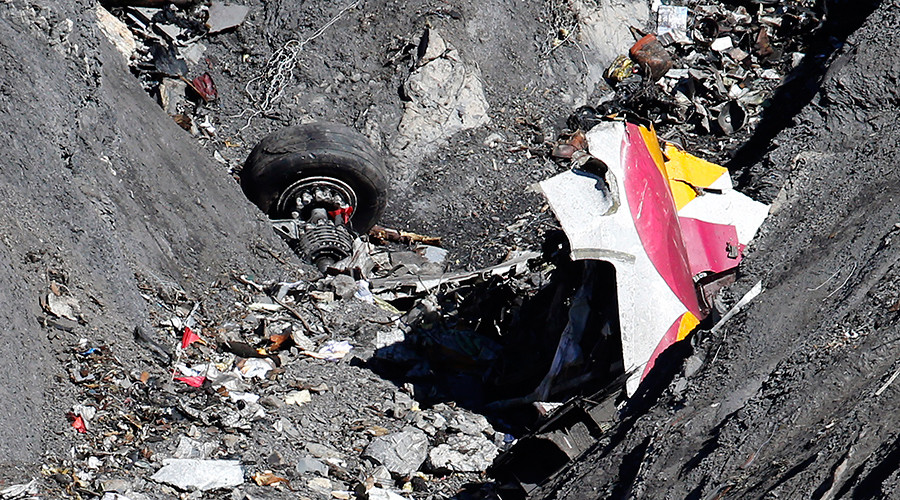-
Tips for becoming a good boxer - November 6, 2020
-
7 expert tips for making your hens night a memorable one - November 6, 2020
-
5 reasons to host your Christmas party on a cruise boat - November 6, 2020
-
What to do when you’re charged with a crime - November 6, 2020
-
Should you get one or multiple dogs? Here’s all you need to know - November 3, 2020
-
A Guide: How to Build Your Very Own Magic Mirror - February 14, 2019
-
Our Top Inspirational Baseball Stars - November 24, 2018
-
Five Tech Tools That Will Help You Turn Your Blog into a Business - November 24, 2018
-
How to Indulge on Vacation without Expanding Your Waist - November 9, 2018
-
5 Strategies for Businesses to Appeal to Today’s Increasingly Mobile-Crazed Customers - November 9, 2018
Germanwings crash: New rules needed for pilot health issues
According to a report released by a French investigative body on Sunday, a private doctor had recommended the 27-year-old co-pilot, Andreas Lubitz, be admitted to a hospital for “symptoms suggesting a psychotic depressive episode”.
Advertisement
Lubitz consulted dozens of doctors about perceived vision troubles and sleeplessness in the months leading up to the crash.
LE BOURGET, France (AP) French air accident investigators spent a year analyzing remains and interviewing experts about how and why Germanwings co-pilot Andreas Lubitz intentionally crashed a passenger jet into the French Alps, committing suicide and killing 149 others.
The BEA also found that data relating to mental health problems in pilots was hard to come by, because of aviation workers’ reluctance to report possible issues and reporting restrictions due to medical confidentiality rules.
The BEA recommends reinforced medical supervision for pilots and for the right to medical secrecy to be ended in the event of psychological problems, saying current German guidelines on when public safety takes precedence are not clear enough.
The situation here in the United Kingdom is different, said British Airline Pilots Association (Balpa) general secretary Jim McAuslan, who said there is not the same level of medical confidentiality as there is elsewhere. Authorities found from listening to the cockpit voice recorder that the flight captain told Lubitz he was leaving the cockpit and asked him to assume radio communications.
“These rules should take into account the specificities of pilots, for whom the risk of losing their medical certificate, being not only a financial matter but also a matter related to their passion for flying, may deter them from seeking appropriate health care”, the report states.
New rules should limit legal risks to doctors when they report a public safety risk, the BEA said.
“A lockage system can not be created to prevent threats coming from (both) outside and inside the cockpit”, Desjardin said.
Sunday’s report confirmed that Lubitz appeared to have rehearsed the crash on the outbound flight from Dusseldorf to Barcelona earlier that morning, waiting for the captain to leave before briefly reducing the aircraft’s altitude from 38,000 to 100 feet, then returning the plane to its cruising altitude after a few seconds.
Because those rules protect patients’ privacy even after they die, multiple doctors also refused to speak with crash investigators.
Desjardin described Germany’s privacy rules as being especially strict, and said doctors fear losing their jobs or potential prison terms if they unnecessarily report a problem to authorities.
Lufthansa said after the crash that it was aware of Lubitz’s depressive episode, but Germanwings, which he joined in 2013, said it had no knowledge of his illness. “He was mentally unbalanced, tremendously unbalanced”, Oliver said.
Many airlines and regulators have issued changes since the March 2015 Germanwings crash in the French Alps and now require at least two people to be in the cockpit at any given time to prevent similar crashes.
The BEA said his mental state had not generated any concerns reported by the pilots who flew with him.
But Desjardin says the investigators determined that systematic, deep psychological tests every year for all pilots would be “neither effective nor beneficial”.
Advertisement
In a statement Balpa said it would look at the report’s findings and support “any recommendation that could help prevent a tragedy like this in future”.





























